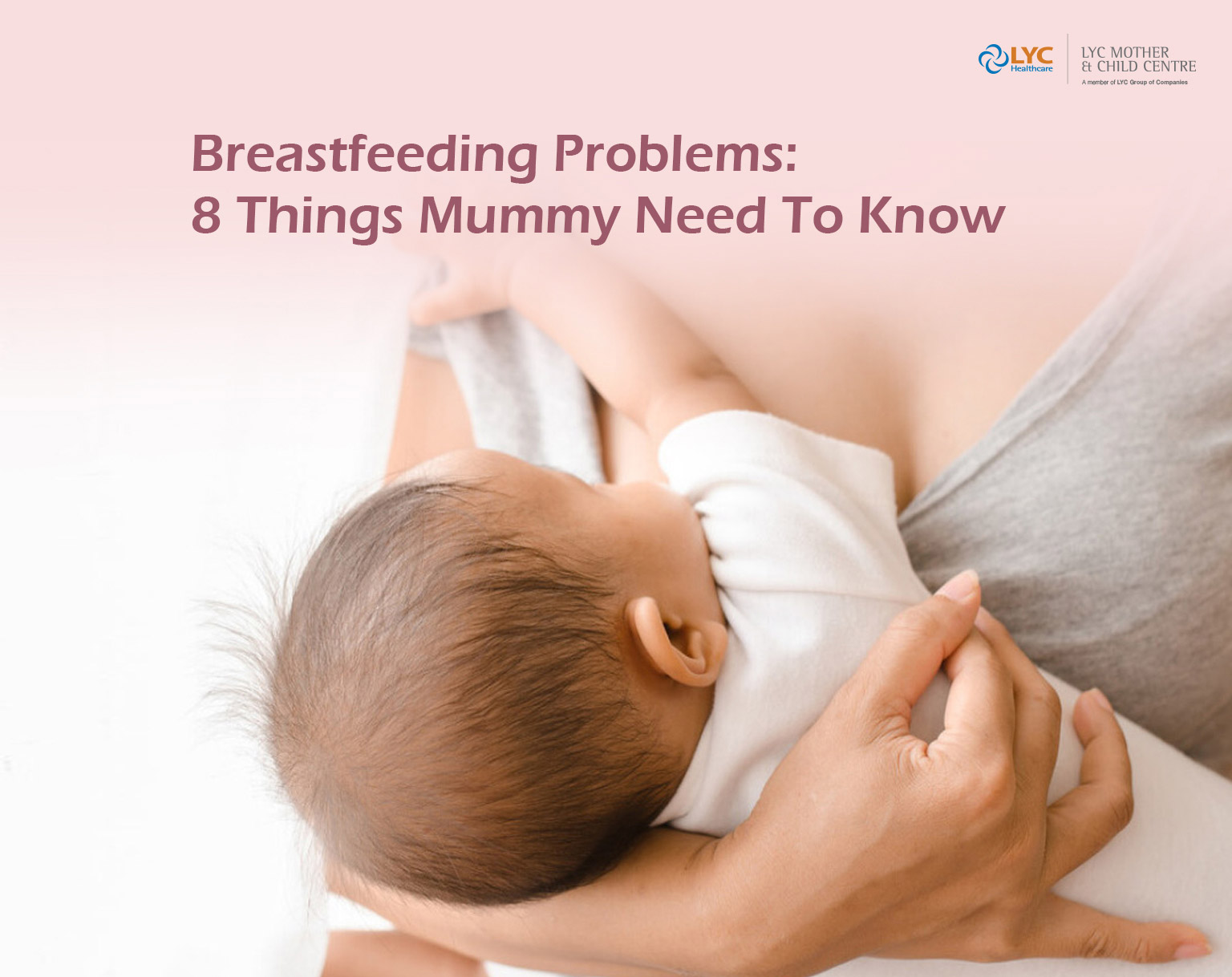The health benefits of breastfeeding for mothers and babies have been proven by the medical community and breastmilk is undoubtedly the best dietary source for newborn babies, but breastfeeding may cause frustrations and setbacks for some mothers, especially for first-time mothers. Not all mothers know how to breastfeed. If you face any trouble breastfeeding, it is recommended to seek assistance. After all, both mothers and babies need to learn the skills when it comes to breastfeeding, and problems can be solved with professional help.

Here are the 7 most common breastfeeding problems:
Some women have one or both inverted nipples, i.e. not protruding from the breast, which can make it difficult for the baby to latch on, especially for new moms. Before your baby latches on, try pulling the breast back, moving the nipple, and gently pinch the areola to make the nipple protrude. A breast pump can make it easier for your baby to latch on, and a nipple shield can also help your baby latch, but it must be used under the guidance of a lactation professional.
Many mothers will complain that breastfeeding can cause their nipples to feel extremely sore. The nipples need time to adapt to breastfeeding. If the pain does subside after a while, it is necessary to check the baby's latching position. If your baby doesn’t take enough of the breast into its mouth it can cause you pain. Your baby should have most of the areola in his mouth and cover more of the lower areola with his lower lip and jaw.
Breastfeeding is something new for the baby too. Some babies naturally know how to suck, while others take time to learn. Some babies may also have a tongue-tie, making it difficult to latch on; this can be easily fixed by a pediatrician with minor surgery.
If your breast hurts while breastfeeding, it is likely that your breasts are producing milk faster than it is getting expressed, and the milk accumulates and gets backed up in the duct. Breastfeeding is the best way to unclog it, and if one breast is clogged, feed that breast to your baby first, as your baby always sucks the strongest when he's hungry. Between feedings, gently massage the sore breast and use a warm compress to ease the pain.
It is common to have cracked nipples when breastfeeding. Apply lanolin cream, and after feeding your baby, leave a little milk on the nipples and wear a loose cotton bra. Don't use soap, alcohol, or regular lotion because they won't help. If your baby is a little older, you might try breastfeeding more regularly, because the less hungry your baby is, the softer and less painful the suck will be.
An oversupply of milk can lead to engorged breasts and even a mild fever, which can make it difficult for the baby to latch on and cause pain for the mother. Try to offer the engorged breast to your baby before he is screaming for it, a calm baby that is not starving may latch on more successfully. Your body will continue to produce milk in response to the baby's sucking action, try expressing a little breast milk by hand before each feeding session to soften the nipple and ease the latching process without further increasing supply.
Mastitis is a bacterial infection that causes swollen breasts, usually due to clogged ducts, cracked nipple infections, or even engorged breasts. Mastitis tends to be painful with flu-like symptoms, and some pain can be relieved by a warm compress. It is usually treated with antibiotics, medical experts recommend breastfeeding after mastitis.
The most frequently asked question by breastfeeding mothers is, "Is my baby hungry? What if I don't have enough milk supply?" Once you start breastfeeding, your body adjusts to your baby's needs, so the initial oversupply of breast milk can be overcome. Insufficient milk supply is only of concern if your baby is not gaining weight as expected. Another way to tell if your baby is getting enough is to count the number of diaper changes per day, usually 6 to 8 times a day means your baby is drinking enough water. In the case of a real shortage, it is recommended to eat more of certain foods to increase milk production.
Most mothers can breastfeed successfully, creating a strong bond with their baby while helping to build their immune system. Breastfeeding mothers should talk to a lactation consultant or doctor if they have any concerns about breastfeeding.
The early bird gets the worm, to enjoy the professional postnatal care services you deserve, send us a private message for more details:
TTDI: wa.me/+60126277335
Puchong: wa.me/+60125687335
Bukit Jalil: wa.me/+60173627335
Johor: wa.me/+60122927100